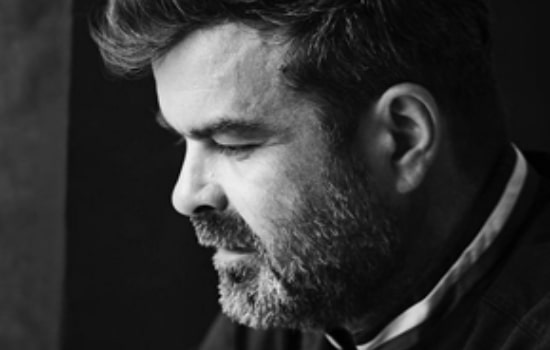Then cutting the cheese, evaluating its texture, and then engaging one's senses – sweet/salty, acidic, bitter, umami, and determining what is minty, spicy, peppery. We then work on texture, then retro-olfaction. These are techniques that professionals already know very well. It's the same process as in oenology where you do a first nose, then a second. This is exactly what we apply to a cheese.
How long has this art of tasting been professionalized? Are there experts in caséology?
"We have been tasting cheese for a very long time. The ancients, through tasting, already had a great deal of knowledge. The fact of training, coupled with a form of experience, may have about twenty years when the French cheese school began to introduce caséology. There are indeed experts today. But this expertise manifests itself at different levels. A Comté maturing expert, who tastes his cheeses, is doing
caséology. And then there's someone like Caroline Boquet, a trainer at the Dairy Products Training Center. She trains dozens and dozens of cheesemongers in the art of tasting. Caséology leads to something interesting: the art of verbalizing, that is, communicating one's feelings as honestly and sincerely as possible about the sensations.
What criteria or methodology?
"The first sense is sight. We can deduce a number of things that we see through experience. Then the senses must intervene one after the other, if possible without omitting any. I personally insist on the fact that smell is the second sense that must intervene. One must explore the cheese in 'all its facets': inside, outside. And check that the indications received correspond to reality.
Once the inside and then the outside of the cheese is smelled, I generally taste the inside of the cheese to define sweet/salty, acidic, bitter, umami. So we activate the taste buds while feeling the cheese. Thus, it is touch and taste. I taste the rind separately to see if there are divergences and convergences. I finish with the length in the mouth, the appearance of aromas. These are the aromas that will produce retro-olfaction. I focus on this length. This is roughly the technique to follow in caséology.
How long has this art of tasting been professionalized? Are there experts in caséology?
"We have been tasting cheese for a very long time. The ancients, through tasting, already had a great deal of knowledge. The fact of training, coupled with a form of experience, may have about twenty years when the French cheese school began to introduce caséology. There are indeed experts today. But this expertise manifests itself at different levels. A Comté maturing expert, who tastes his cheeses, is doing
caséology. And then there's someone like Caroline Boquet, a trainer at the Dairy Products Training Center. She trains dozens and dozens of cheesemongers in the art of tasting. Caséology leads to something interesting: the art of verbalizing, that is, communicating one's feelings as honestly and sincerely as possible about the sensations.
What criteria or methodology?
"The first sense is sight. We can deduce a number of things that we see through experience. Then the senses must intervene one after the other, if possible without omitting any. I personally insist on the fact that smell is the second sense that must intervene. One must explore the cheese in 'all its facets': inside, outside. And check that the indications received correspond to reality.
Once the inside and then the outside of the cheese is smelled, I generally taste the inside of the cheese to define sweet/salty, acidic, bitter, umami. So we activate the taste buds while feeling the cheese. Thus, it is touch and taste. I taste the rind separately to see if there are divergences and convergences. I finish with the length in the mouth, the appearance of aromas. These are the aromas that will produce retro-olfaction. I focus on this length. This is roughly the technique to follow in caséology.
Does caséology play a role in manufacturing and preservation methods?
"Caséology does not alter a taste. But should someone who wants to create a cheese master this art of tasting? Obviously, one must taste, conduct tests. This ultimately influences. Knowing how to taste as a producer or affineur is essential. But you have to know yourself well because we are not all equal when it comes to taste, with different sensitivities. In fact, this technique is anything but objective! Caséology is part of the cheese creation process.What are the major challenges caséology faces?
"Specific challenges: the art of tasting for a professional is crucial for choosing a product and knowing how to verbalize and then transmit it to a customer. The challenge is therefore to be trained in this. There is a whole new generation learning to taste. It's a real issue because you have to be trained like a sommelier or a wine merchant. The challenge is not to be too snobbish, but I must say that it's quite personal. I would like us not to have the elitist side that is sometimes found in wine tasting. Because cheese remains a popular product and remains relatively accessible. I prefer that we stay simple...
At the International Cheese and Dairy Products Fair, François Robin will lead a session on caséology at the Agora des Experts on Sunday, February 25, 2024 – 20:30 – 21:30."

